VICTORIAN COMMUNITY HISTORY AWARDS 2023
WINNERS ANNOUNCEMENT
On Friday 2nd February, the 2023 Victorian Community History Awards ceremony was held at the Arts Centre.
The award winners in the twelve categories spanned a wide breadth of the state’s history, covering diverse topics such as 19th century St Kilda, the 1970s Pram Factory, the loss of “Marvellous Melbourne” last century, and contemporary social media takes on the urban environment.
Quotes attributable to Minister for Government Services Gabrielle Williams
“It’s fantastic that we can celebrate the people and the projects that tell our stories in such a compelling way.”
“These projects help us to better understand the communities we live in and their rich heritage – congratulations to all award winners for their outstanding work.”
Quote attributable to Public Record Office Victoria Director and Keeper of Public Records Justine Heazlewood
“This year’s winners demonstrate the many varied and contemporary ways the history of Victoria can be told and shared to reach a wider audience. Well done everyone.”
Quote attributable to President of the Royal Historical Society Victoria Emeritus Professor Richard Broome AM
“The judges had another exceptional pool of entries to choose from this year and every community historian who participated should be applauded for their commitment to local history.”
See the full media release here.
Please click the images or titles of entry’s to be either directed to the entrants website or the History Victoria bookshop.
Click here to view a Where to Find Them document. This will provide information on where to access all the entries into the 2023 VCHA.
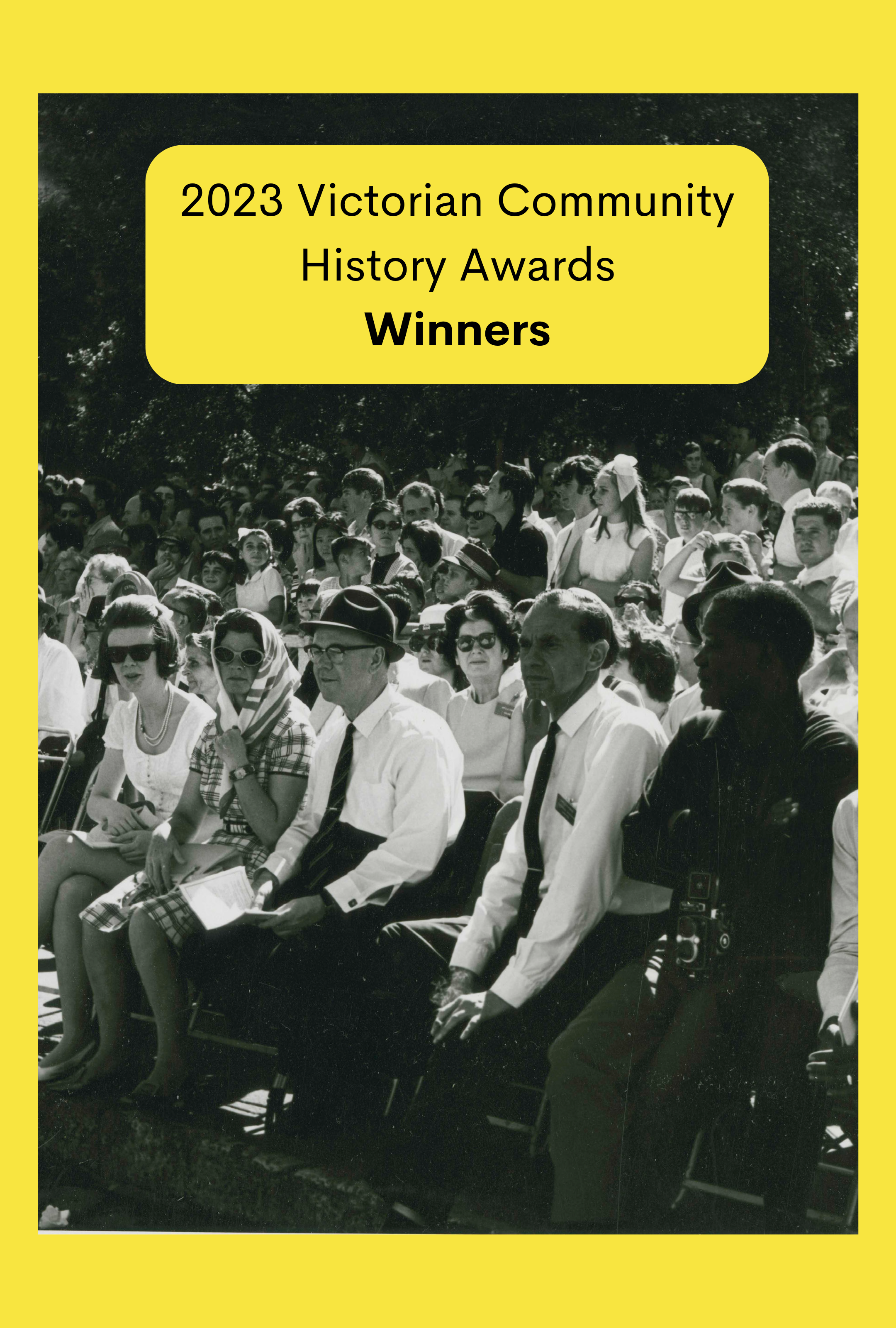
VICTORIAN PREMIER’S HISTORY AWARD
WINNER
St Kilda 1841–1900: Movers and Shakers and Money-makers
By Carmel McKenzie
St Kilda 1841–1900 is a beautifully presented and profusely illustrated social history of one of Melbourne’s best-known bayside suburbs. Having identified the driving forces behind the early urban development of what was an attractive grassy knoll, Carmel McKenzie charts the beginnings, the rise to opulence and the subsequent decline of the suburb, over a 60-year period. The government’s release of land, and the desire of well-heeled buyers looking for a relatively isolated place on which to build, led to European occupation in 1841. Of course, the influx of greater numbers of Europeans into the St Kilda area had a devastating impact on the Yaluk-ut Weelam, the local clan of the Bunurong language group. McKenzie considers this issue at some length, and also that of local ‘beach dwellers’, particularly Chinese men.
While its focus is primarily on a relatively small area of the growing metropolis of Melbourne, McKenzie’s study is much more than a local history. All of the movers and shakers of the sub-title were part of a social network that connected them to other individuals within the banking, merchant and political circles of Victoria. These connections are well explored here, as are a range of social determinants at play in the lives of the monied classes of Melbourne in the latter half of the 19th century. The scope of subjects touched on in this book is wide, with consideration being given to such matters as changes in the architectural style of mansions, the importation of Indian men to work as servants in the homes of wealthy residents, and the increasing insanitary nature of St Kilda in the 1890s.
This book is social history at its very best, and a worthy winner of the 2023 Victorian Premier’s History Award.
JUDGES’ SPECIAL PRIZE
WINNER
Frontier Magistrate: The Enigmatic Foster Fyans
By John Cary
Frontier Magistrate tells the life story of Foster Fyans, successively a British Army officer, Commandant of penal settlements, and police magistrate in colonial Victoria. It is the first full-scale biography of Fyans who had a significant role in the earliest years of European occupation in Victoria.
In a range of official capacities, between 1837 and 1853, Fyans interacted with many of the earliest settlers and squatters, particularly in the large area between Geelong and the Portland Bay District. As a Commissioner of Crown Lands, he was charged with preventing collisions between the squatters and Indigenous peoples, a task which, in the circumstances, was well-nigh impossible.
John Cary has produced a highly readable study of Fyans, which places him within the wider context of the moving frontier of the European invasion of First Nations’ country. The text is well researched and balanced—the author does not refrain from referring to the prejudices and attitudes displayed by his subject. This is a ‘warts and all’ biography, of a superior kind
COLLABORATIVE COMMUNITY HISTORY AWARD
WINNER
On Bunurong Country:Art and Design in Frankston
Lisa Byrne and Dr Jane Eckett
On Bunurong Country: Art and Design in Frankston throws light on the cultural and social history of greater Frankston, an area that has not been generally known for fine art and design. It is a very rich collaborative effort, with valuable contributions by a range of recognised experts in art and design and significant attention to First Nations Peoples history and culture. The book is a refreshing take on local history, viewed through the prism of art, and is beautifully presented. This excellent work has the potential to transform people’s perception about the cultural heritage of greater Frankston and inspire young people living in the region.
COMMENDATIONS
Tales from Rat City: A Local Subaltern History Podcast and Performances Set in the Goldfields of Western Victoria Dr David Waldron, 2023
Once Upon An Island – The Early Days of Phillip Island Anne Oswin, Eleanor McKay and Sarah Hudson from the Phillip Island and San Remo Advertiser Chicory Publishing, 2023
Queenscliffe Revealed: Hidden Histories – New Narratives Queenscliffe Historical Museum Inc. 2022
SMALL ORGANISATION HISTORY PROJECT AWARD
WINNER
Precious Objects: Shared Memories of our Collective Past
By Willaura Modern Incorporated at Historic Railway Station Gallery in association with Willaura Historical Society, 2023
The judges felt that the documentation submitted for Precious Objects: Shared Memories of our Collective Past truly conveyed the spirit of Victorian community history. The exhibition was impressively curated with 50 precious objects, seemingly random, but all of some significance to someone in the town’s past. This technique allowed several stakeholders from Willaura to tell a multitude of narratives about a small community and its past, rather than simply telling the stories of a few. The judges were impressed by the genuine commitment to community collaboration both through the exhibition and its launch.
COMMENDATIONS
Pioneers, Celebrities and Legends of Airport West Interviews conducted by Cathie Mahon and John Tait The Airport West History Group Inc., 2023
Sebastopol School Days:A History of the Sebastopol Primary School No.1167 1873–2023: 150 Years of State Education Margaret J. Phyland and Susan M. Parker Sebastopol Historical Society Inc., 2023
SMALL HISTORY PUBLICATION AWARD
WINNER
Flinders Cargo Shed: Heritage and Environs
By Flinders District Historical Society
Beginning with the 2022 Flinders Pier Precinct heritage listing by the Heritage Council of Victoria, this small volume reveals the importance of this space’s natural history, the early Bunurong–colonist relationships in this area of Bunurong Country, and the role of the site in industry, telecommunications and defence. This is a considered and informative history with an engaging narrative, drawing on an interpretive display housed in the Flinders Cargo Shed. This history is beautifully illustrated and situates the history of the Cargo Shed and pier within broader moments of Victoria’s history, and demonstrates the significance of the Cargo Shed’s built structure to the state.
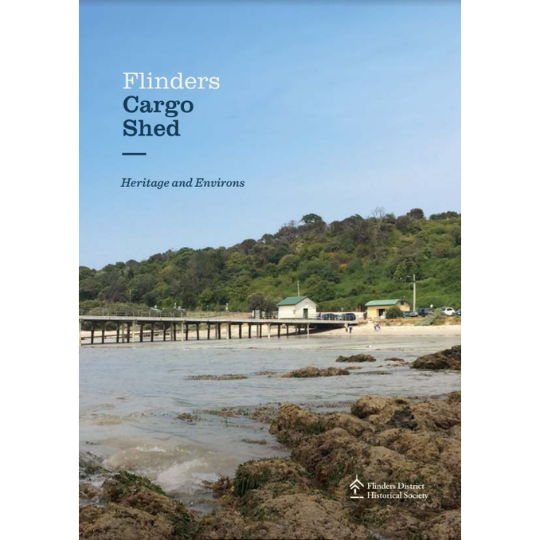
COMMENDATIONS
A Darker Shade of Moonlite: A Creative Biography Craig Cormick Queer Oz Folk, 2023
From Rural Health to Community Strengthening: The Story of the Mirboo North & District Community Foundation Dr Julie Fenwick Mirboo North & District Community Foundation, 2023
Quartz Hill: The Gold Mining History of Bristol Hill, Maryborough Craig Roberts Maryborough Midlands Historical Society, 2023
COMMUNITY DIVERSITY AWARD
WINNER
Nyernila
By Charlton Neighbourhood House, 2023
Nyernila means to ‘listen, hear, understand and know continuously’. This Djaara word, used to name this project, reflects the efforts by the Charlton Neighbourhood House community to understand the history of Country on which the neighbourhood house and its members reside. In this they worked with the Dja Dja Wurrung community, the Traditional Owners of that Country. The project also reveals the generosity of the Dja Dja Wurrung community, in sharing their language to name the project, their stories, as well as information about Ancestors, and knowledge of Country and songlines. This process was facilitated through commissioned artworks. Illustrated with some of the Dja Dja Wurrung artworks and artists, it is an exciting community project that that will lead to ongoing collaboration.
COMMENDATIONS
Chasing the Dragon’s Tale:Researching Box Hill’s Pioneer Chinese Residents Box Hill Historical Society, 2023
Horace Street Green: A Personal Past Edward Duyker, 2023
Survivors and Thrivers: Male Homosexual Lives in Postwar Australia David Gould Queer Oz Folk, 2023
HISTORY ARTICLE AWARD
WINNER
No Mention of the Great Famine: Interpreting a Gap in Dr John Singleton’s Autobiographical Narrative
By Sylvia Morrissey
Sylvia Morrissey’s analysis of the context and content of the memoir of Dr John Singleton and his wife who arrived in Victoria in 1851 is deeply researched and fluently written, offering insights that have bearing on both the past and the present. Seeing himself as a ‘medical missionary’ along with his wife, Singleton spent 40 years engaged in a wide range of medical, evangelical and philanthropic pursuits in the burgeoning colony. These included co-founding the Melbourne City Mission, helping establish the Framlingham Aboriginal Mission Station, co-founding the Children’s Hospital and various bodies offering shelter, services and medical treatment for the poor and destitute. He was a tireless advocate for prison reform and temperance, who, in the last year of this life wrote his 400-page memoir.
Morrissey’s graphic portrayal of the suffering in Ireland during the famine is a timely reminder of the importance of previous experience in understanding the behaviour of those who made their home in the colonies and reminds us that trauma was often part of that experience. It also fills in a gap – for the intriguing mystery at the heart of this article is Singleton’s apparent ‘forgetting’ of the malnutrition, disease and misery that accompanied the Irish Famine in which he was deeply immersed as a medical practitioner. Morrissey’s approach to this gap is highly original. Singleton’s silence, she suggests can perhaps be understood as a symptom of what we now know as PTSD in which ‘silence’ is often ‘a key to the unspoken world’ of the sufferer, or perhaps evidence of ‘a moral wound’, the result of acting in or witnessing events that ‘transgress deeply held moral beliefs and expectations.’ ‘Silence cannot be interrogated,’ Morrissey declares, but ‘it can be interpreted’ – and she proceeds to offer a thoughtful and nuanced interpretation that has resonances with the contemporary situation as historians wonder at the way the Spanish Flu pandemic seemed to have slipped from memory, while many emigrants and refugees have arrived carrying the pain of deep trauma, to say nothing of the trauma of First Nations peoples.
COMMENDATIONS
A Grassroots View of Spanish Influenza in Melbourne Mary Sheehan in Victorian Historical Journal, 2022
Not Invisible, Not Silent, Not Nameless: Dja Dja Wurrung Contributions to Nineteenth-Century Goldfields Society in Central Victoria, Australia Fred Cahir, Rodney Carter, Jason Kerr, Marlene Burchill, Ron Kerr, Tom Baksh, Rick Nelson and Dan Tout in Cultural and Social History, 2022
Livingston: A One-Teacher School in the Gippsland Hills, 1913–1938 David Harris in Victorian Historical Journal, 2023
Discovering an Archive Lucinda Horrocks in Provenance, 2022
Industrial Schools in Victoria 1864–1872 Russell Spencer in Victorian Historical Journal, 2023
LOCAL HISTORY PROJECT AWARD
WINNER
Houses of North and West Melbourne
Elio Sarpi
The Houses of North and West Melbourne Instagram account is an exemplary model of how social media can be used to lift the profile of local history. The captions accompanying each carefully selected building demonstrate detailed research and an abundance of engrossing, intriguing and little-known fact. The range of buildings documented enables an exploration of the many facets that go together to make up the history of one of Melbourne’s oldest, but still thriving, areas. The account has attracted more than 16.6 thousand followers who have enriched the heritage value by adding their own cultural and historical knowledge through the comments. An engrossing offering to a broad audience of both locals and others interested in the history of Melbourne.
COMMENDATIONS
Veterans Public Arts Trail Australian National Veterans Arts Museum, 2023
Rekindling Father McHugh’s Kilmore Kilmore Historical Society, 2023
Albert Park: Gardens to the Sea Middle Park and Albert Park History Group, 2022
HISTORY PUBLICATION AWARD
WINNER
Staging a Revolution: When Betty Rocked the Pram
By Kath Kenny
Staging a Revolution is the story of the making of the radical stage production, Betty Can Jump, directed by Kerry Dwyer, produced by the Carlton Women’s Liberation group, and performed at the Pram Factory in 1973. The play was born out of and intertwined with the struggles of the women’s liberation movement in Melbourne in the early 1970s.
Betty Can Jump was a bold and revolutionary feminist play, performed by five actors. To mark its 50th anniversary, Kath Kenny has produced an engaging and highly readable account of an important episode in Melbourne’s more recent history. Kenny vividly evokes the world in which the drama was played out and its key players, demonstrating a skilled use of oral records that bring to the page the voices of the period. She also uses interviews to weave into the account some more recent reflections of the main characters. This book has much to commend it: its imaginative, playful and clever structure; its energetic prose; and its wide and varied range of sources. Kenny balances the complex issues and agendas of 1970s feminism against the backdrop of the independent theatre scene with all its own dramas and vulnerabilities. As well as being an important episode inMelbourne’s history, this is a rich and valuable record of a significant group of women who, through theatre, were making history.
COMMENDATIONS
Into the Darkness: The Story of Minnie and William Eason Karen J Collins, 2022
Wooden Rails and Green Gold: A Century of Timber and Transport Along the Yarra Track Peter Evans Light Railway Research Society of Australia, 2023
Family Business: The Simmie Family of Simmie & Co and Harpsdale Dr Andrew J Kilsby, 2023
Garryowen Unmasked: The Life of Edmund Finn Elizabeth Rushen Anchor Books, 2022
Justice in Kelly Country: The Story of the Cop Who Hunted Australia’s Most Notorious Bushrangers Lachlan StrahanMonash University Publishing, 2022
DIGITAL STORYTELLING AWARD
WINNER
Unknown Melbourne
By Julian O’Shea
Unknown Melbourne is a beautifully researched, produced and presented series of short-form videos shedding new light on the well-worn streets of the great city of Naarm/Melbourne. With a significant internet, social media and community following, this series draws on the iconic, quirky and sometimes surprising aspects of everyday life in Melbourne in a playful yet factual manner. Old places are gifted a new historical connection, character and context, and in the process, Melburnians are given a new lens through which to view their city. Engaging, sophisticated and clever work from Julian O’Shea.
COMMENDATIONS
The Frankston Murders Vikki Petraitis Casefile Presents, 2023
Bonegilla Stories Simon Reich, 2022
The Rest Is Up To You: A Podcast Written and produced by Jon Thija, Hosted by Simon Abrahams and Kate Rhodes Melbourne Fringe, 2022
ORAL HISTORY AWARD
WINNER
Don’t Be Too Polite Girls
By Richard Lowenstein and Martie Lowenstein
This twenty-five minute documentary film illuminates the origins of Australian oral history through the extraordinary story of oral history pioneer Wendy Lowenstein: from her days in the postwar Communist Party youth movement and political theatre, through the development of the Australian Folk Movement, to traveling around Australia in a van with her husband and children in 1969 creating oral histories on a reel to reel recorder. Combining vivid film footage of political and cultural movements and from home movies, audio interviews with Wendy, and riveting filmed extracts from many of Wendy’s recordings, the documentary captures the irascible energy, determined politics and insatiable curiosity of one of Australia’s oral history pioneers. It evokes the excitement of creating new ways of listening to the histories of so-called ‘ordinary’ Australians.
COMMENDATIONS
Our Lives, Our Stories: Geelong Care Leavers Talking Back to their Records Abigail Belfrage, Consulting Historian with The History Dept. with the Australian Orphanage Museum Project Team Australian Orphanage Museum, 2023
Beyond Bourke Street: Melbourne Buskers in the Digital World Daniel Bacchieri, 2022–23
Stonnington’s Young Voices of the Pandemic Way Back When Consulting Historians and City of Stonnington, 2022
HISTORY INTERPRETATION AWARD
WINNER
The Lost City of Melbourne
By Gus Berger
The success of The Lost City of Melbourne in elevating the history of Victoria is evident through its wide-spread appeal beyond the field of professional and community history, and the responsiveness of the general public to this work. The judges felt that the production was well-researched, expertly referenced and drew on a range of sources. The filmed historical experts were well chosen due to their ability to select the stories that resonate with modern-day audiences. Creator Gus Berger has made us think about what is lost and what remains in the built fabric of contemporary Melbourne.
COMMENDATIONS
Eye Spy! Waking our Secret Agents Heidelberg Historical Society Inc., 2023
Whispers from the Past Friends of Churchill Island Society Inc., 2022
William Bailey’s Haunted Mansion: A Live Action Roleplaying Game Performance Dr David Waldron, 2023
Melbourne Royal: Celebrating 175 Years Melbourne Royal, 2023
The Victorian Community History Awards are proudly presented by Public Record Office Victoria and the Royal Historical Society of Victoria.
The Awards recognise excellence and originality in historical storytelling. The range of award categories reflects the variety of formats that can be used to enrich the lives of Victorians through history.
Need more information?
Call us on 03 9326 9288
Email us at vcha@historyvictoria.org.au | historyvictoria.org.au | prov.vic.gov.au

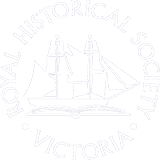
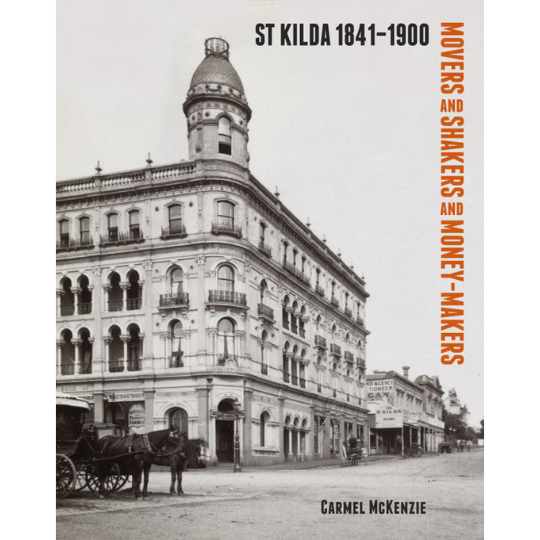

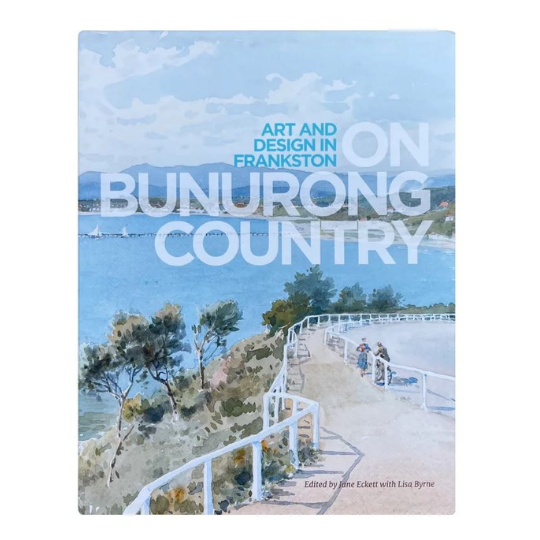
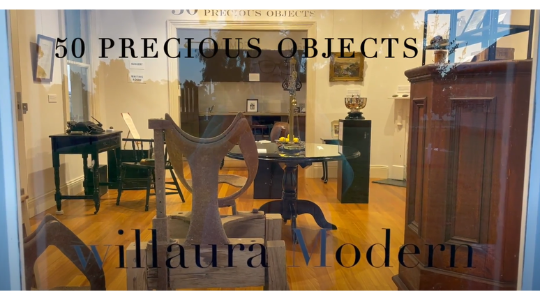


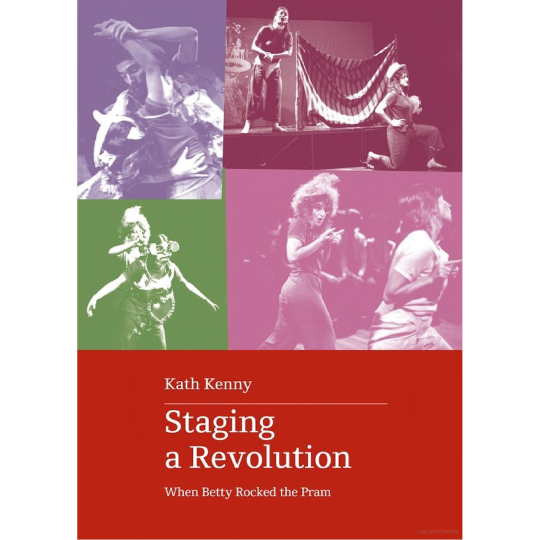
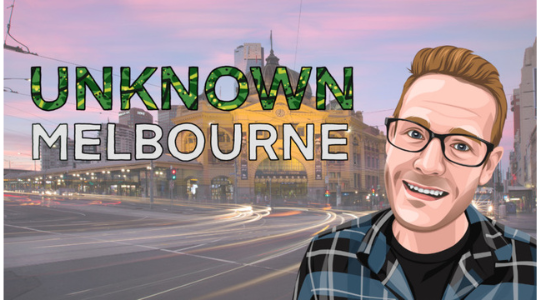


 239 A'Beckett Street Melbourne, Victoria, 3000
239 A'Beckett Street Melbourne, Victoria, 3000  03 9326 9288
03 9326 9288  office@historyvictoria.org.au
office@historyvictoria.org.au  Office & Library: Weekdays 9am-5pm
Office & Library: Weekdays 9am-5pm

